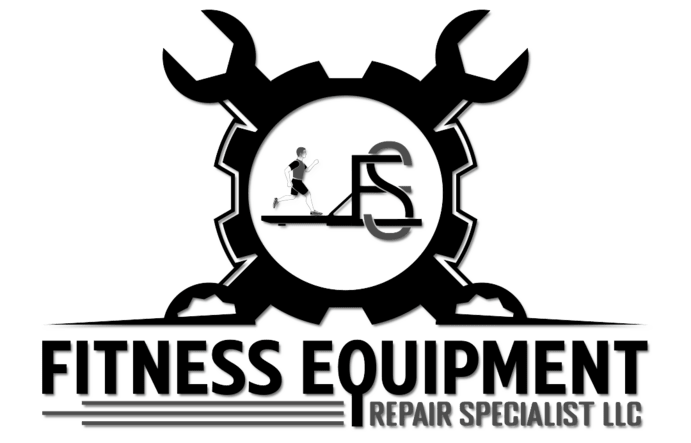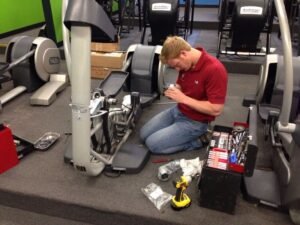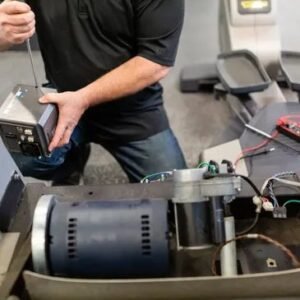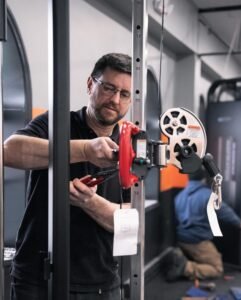Professionalism, efficiency, and safety are key components of the fitness sector. Through machine maintenance and repair, gym equipment repair professionals are essential to the seamless operation of fitness facilities. However, their work necessitates rigorous attention to legal compliance in addition to technological skills.
In addition to protecting fitness centers’ reputations and technicians and company owners from potential lawsuits, legal compliance guarantees the safety of gym patrons. It’s critical to comprehend the legal framework for equipment maintenance, whether you’re a gym owner, repair technician, or member who is concerned about safety.
-
Importance of Legal Compliance in Gym Equipment Repair
Fitness equipment is subject to rigorous use, which makes proper maintenance essential. Legal compliance is critical for the following reasons:
- Ensuring User Safety: Faulty equipment can lead to injuries, making it imperative that repairs meet safety standards.
- Avoiding Liability: Non-compliance with legal regulations can result in lawsuits or penalties for fitness centers and repair technicians.
- Building Trust: Customers and gym owners are more likely to trust technicians and repair services that follow industry standards and regulations.
-
Key Regulations for Gym Equipment Repair Technicians
To ensure legal compliance, repair technicians must familiarize themselves with the following key regulations and standards:
-
a) Occupational Safety and Health Administration (OSHA) Guidelines
OSHA sets standards for workplace safety, which extend to technicians working on gym equipment. These guidelines cover:
- Safe handling of tools and machinery.
- Proper use of personal protective equipment (PPE).
- Awareness of electrical safety when repairing motorized equipment like treadmills and elliptical machines.
-
b) Manufacturer Specifications
Repair technicians must follow the manufacturer’s guidelines for maintenance and repairs. Deviating from these specifications can void warranties and result in substandard repairs.
-
c) Consumer Product Safety Act (CPSA)
Under the CPSA, technicians and gyms must ensure that repaired equipment meets safety standards to avoid endangering users.
-
d) Licensing and Certification Requirements
In some states or regions, repair technicians may be required to hold specific licenses or certifications, especially for handling electrical components. Staying updated on local regulations is essential.
-
e) Environmental Compliance
Disposing of old parts and electrical components improperly can lead to environmental violations. Technicians should follow eco-friendly disposal practices in line with local environmental laws.
-
Common Legal Pitfalls to Avoid
Gym equipment repair technicians should be aware of common legal pitfalls, including:
- Ignoring Regular Maintenance Logs: Maintenance records are often required to prove compliance with safety standards. Skipping log updates can lead to legal disputes if issues arise.
- Using Substandard Replacement Parts: Always use manufacturer-approved or high-quality parts to ensure safety and compliance.
- Overlooking Training Requirements: Lack of proper training for handling advanced equipment can lead to errors and legal consequences.
-
The Role of Contracts in Legal Compliance
Clear contracts between gym owners and repair technicians protect both parties. Contracts should include:
- A detailed scope of work.
- Compliance with all relevant laws and standards.
- Warranty or guarantee terms for repairs performed.
- Having well-drafted agreements minimizes misunderstandings and provides legal recourse if disputes arise.
-
Staying Updated on Legal and Industry Changes
Regulations and industry standards evolve, making it essential for repair technicians to stay informed. Here’s how:
- Attend industry workshops and seminars.
- Regularly review updates from regulatory bodies like OSHA and the Consumer Product Safety Commission (CPSC).
- Join professional organizations to network and stay ahead of compliance trends.
-
How Gym Owners Can Support Compliance
Gym owners also have a responsibility to ensure their equipment is maintained legally and safely. They can support technicians by:
- Partnering with certified and experienced repair professionals.
- Maintaining open communication about the gym’s equipment needs and issues.
- Keeping equipment manuals and warranties accessible.
- Scheduling regular maintenance to prevent last-minute repairs that may compromise compliance.
-
Benefits of Legal Compliance in Gym Equipment Repair
Adhering to legal standards offers numerous benefits for repair technicians and gym owners alike:
- Well-maintained equipment reduces the risk of accidents and injuries.
- Compliance with legal standards builds trust and reliability, attracting more business.
- Meeting all regulatory requirements minimizes the risk of legal action or fines.
- Proper repairs and maintenance extend the life of gym equipment, saving money in the long term.
Conclusion – Legal Compliance In Gym Equipment Repair Is Professionalism
Legal compliance in gym equipment repair is not optional, it’s a necessity for ensuring safety, professionalism, and longevity in the fitness industry. By following regulations, keeping up with industry standards, and maintaining clear communication with gym owners, technicians can protect themselves, their clients, and the gym-goers who rely on their expertise.
At NJ Fitness Equipment Repair, we prioritize legal compliance in all our repair and maintenance services, ensuring safety, reliability. And peace of mind for gym owners and their members. Let us help you keep your equipment running smoothly and legally!



